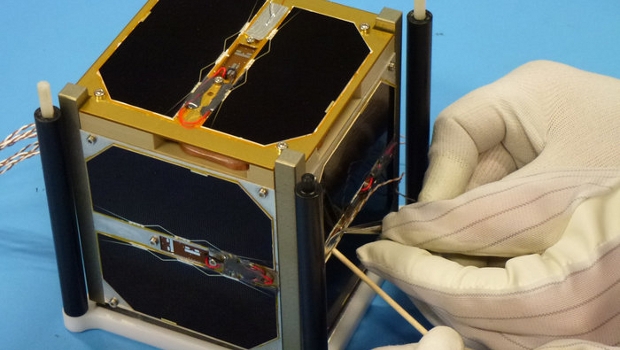The European Space Agency (ESA) has announced the selection of the Eirsat-1 satellite, led by UCD and Queen’s University Belfast to launch and operate a Cubesat to be launched from the International Space Station. This will be Ireland’s first ever satellite and is being developed under the ESA Education Office’s Fly Your Satellite programme.
Eirsat-1 (Educational Irish Research Satellite 1) is a two-unit ‘CubeSat’ that will orbit the Earth for approximately 12 months and will be managed and controlled from a ground station in the School of Physics in UCD via UHF radio.
The launch of an Irish CubeSat also reflects the ambition of the Irish Space Industry Group (ISIG) who recognised the importance of developing heritage to enable growth in the space sector in Ireland.
Dr Ronan Wall, programme manager at Moog Dublin and team leader for Eirsat-1 said: “The overall European Space market was worth €7.5 billion in 2015 and has provided recession-proof year-on-year growth for decades. Moog Dublin is delighted to support UCD and Queen’s University Belfast in this student programme which will help train some of the future workforce for the Space industry in Ireland. Irish Space exports are estimated at €80 million in 2016 – providing at least 4:1 return on State investment in ESA – and we believe that this project will help us take that return to the next level by producing highly skilled workers to meet the export market opportunities.”
Prof Lorraine Hanlon of UCD’s School of Physics and lead Professor on the project, said: “Our students will have an amazing opportunity to learn, not only from the wealth of expertise at ESA, but also from the other excellent teams participating in the programme from across Europe. This hard work will prepare them very well for future careers in the space sector.
“Although the UCD Space Science group works on fundamental research questions in astrophysics, the technology we have developed has wider applications in medicine and security. We can never really imagine when we start new research projects where they will take us – that is especially true in this case.”
TechCentral Reporters








Subscribers 0
Fans 0
Followers 0
Followers